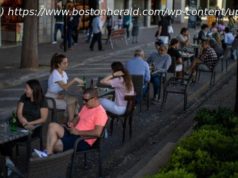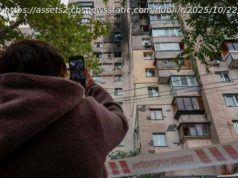It was an unusual penalty against a government of a vital NATO ally, and is sure to inflame already simmering tensions between Turkey and the United States.
WASHINGTON — The Treasury Department on Tuesday announced it had imposed sanctions on two top Turkish government officials whom United States accused of playing a leading role in the detention of an American pastor being held on espionage charges.
The move was an unusual use of financial sanctions against the government of a vital NATO ally, and is sure to inflame tensions that were already simmering over Washington’s refusal to extradite a cleric suspected of leading a failed 2016 coup against President Recep Tayyip Erdogan of Turkey.
The sanctions target Abdulhamit Gul, Turkey’s justice minister, and Suleyman Soylu, the interior minister. They were issued just days after President Trump warned the Turkish government to immediately release the pastor, Andrew Brunson — a demand he made directly last week in a telephone call with Mr. Erdogan.
The sanctions mark a rare public break between Mr. Trump and Mr. Erdogan, two combative leaders and allies in the ongoing military campaign against the Islamic State.
“Pastor Brunson’s unjust detention and continued prosecution by Turkish officials is simply unacceptable,” Treasury Secretary Steven Mnuchin said in a statement. “President Trump has made it abundantly clear that the United States expects Turkey to release him immediately.”
At the White House, Sarah Huckabee Sanders, the press secretary, said Mr. Gul and Mr. Soylu both played “leading roles” in the pastor’s arrest and detention, and that Mr. Trump had personally ordered the sanctions be imposed.
Of Mr. Brunson, she said: “We have seen no evidence he has done anything wrong, and we believe he is a victim of unfair and unjust detention by the government of Turkey.”
Before the sanctions were announced, Mr. Erdogan told reporters in Ankara that threats against Turkey “will not be appropriate,” especially given the country’s “highest level of solidarity at NATO” for the United States.
“They should know our character well,” Mr. Erdogan said.
Mr. Brunson, 50, an evangelical pastor from North Carolina, has been imprisoned in Turkey for 21 months and is accused of aiding the failed coup attempt against Mr. Erdogan in July 2016. Last month, the Turkish government moved Mr. Brunson from jail to house arrest because of health concerns.
Mr. Brunson could face 35 years in prison if found guilty of having links to two groups Turkey considers terrorist organizations: a movement led by the American-based cleric Fethullah Gulen — whom Turkey accuses of initiating the 2016 coup attempt — and the Kurdistan Workers’ Party.
The Treasury Department said Mr. Brunson was arrested with “an absence of evidence,” and it accused the Turkish officials of running entities involved in human rights abuses.
Initially, American officials had hoped that a deal was imminent to free Mr. Brunson, and the Trump administration was careful not to criticize Turkey too strongly after the pastor was moved to house arrest.
But after the phone call between the leaders, Mr. Trump made an abrupt announcement on Twitter that he would place “large sanctions” on Turkey for detaining Mr. Brunson. Days later, a Turkish court rejected Mr. Brunson’s appeal to be freed during his trial.
The men were sanctioned under the Global Magnitsky Act, which authorizes sanctions on foreign government officials for human rights abuses.






